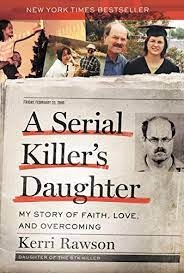 Imagine a young woman, 26 years old, a newly married school teacher. One morning, there’s a knock on the door of the apartment she shares with her husband. It’s the FBI come to tell her that they have arrested her father. Her world shatters as she learns that the man who walked her down the aisle just 18 months before is the notorious BTK serial killer who has killed ten people– including two children — and terrorized Wichita, Kansas for more than 27 years.
Imagine a young woman, 26 years old, a newly married school teacher. One morning, there’s a knock on the door of the apartment she shares with her husband. It’s the FBI come to tell her that they have arrested her father. Her world shatters as she learns that the man who walked her down the aisle just 18 months before is the notorious BTK serial killer who has killed ten people– including two children — and terrorized Wichita, Kansas for more than 27 years.
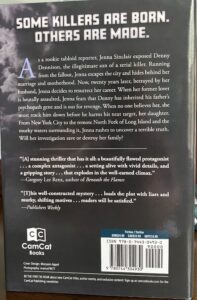 Next, imagine a young man, about 21 years old, a trainee chef who has just married his pregnant girlfriend. One day, she returns from the corner deli with a copy of that week’s edition of The Sun, a New York tabloid newspaper. Reading the big headline story on the front page, the young man learns for the first time that he is the secret son of Evil Ed, a sadistic serial killer executed some two decades previously. His pregnant wife is devastated to learn that she is carrying the grandchild of a psychopath and killer.
Next, imagine a young man, about 21 years old, a trainee chef who has just married his pregnant girlfriend. One day, she returns from the corner deli with a copy of that week’s edition of The Sun, a New York tabloid newspaper. Reading the big headline story on the front page, the young man learns for the first time that he is the secret son of Evil Ed, a sadistic serial killer executed some two decades previously. His pregnant wife is devastated to learn that she is carrying the grandchild of a psychopath and killer.
Fact And Fiction
The young man in the paragraph above is a figment of my imagination. He is the antagonist in my latest thriller, Fool Her Once. The young woman in the opening paragraph, however, is not fictional.
She is Kerri Rawson, the real-life daughter of a real-life serial killer, named BTK ( for “bind, torture, kill” — the method he used to kill his victims.) BTK, real name Dennis Rader, was arrested in 2005. He pled guilty and is currently serving 10 consecutive life sentences.
Kerri makes a brief appearance in my thriller. Or, rather her memoir, A Serial Killer’s Daughter, does. In my book, an FBI agent who runs a fictional behavioral science unit tracking the children of serial killers to determine if they’re exhibiting any genetic predisposition towards criminal behavior shows my main character, Jenna, an excerpt from the real-life memoir.
The chapter is titled: “What Not To Say To A Serial Killer’s Daughter.” It includes the following questions Kerri Rawson has actually been asked on her FaceBook page:
“Do you think you will murder anyone?
Do you have a serial killer gene?
They say traits skip a generation. Aren’t you worried about your kids?”
Daughter’s Anguish
Another real-life serial killer’s daughter, Jen Carson, whose father, Michael Bear Carson, and stepmother, Suzan Barnes, were nicknamed the San Francisco Witch Killers, wrote in Huffington Post: “I began to wonder if I would snap and start killing people, too. I wondered if I had the monster gene. Two family members told me to keep the murders a secret or no one would ever marry me…
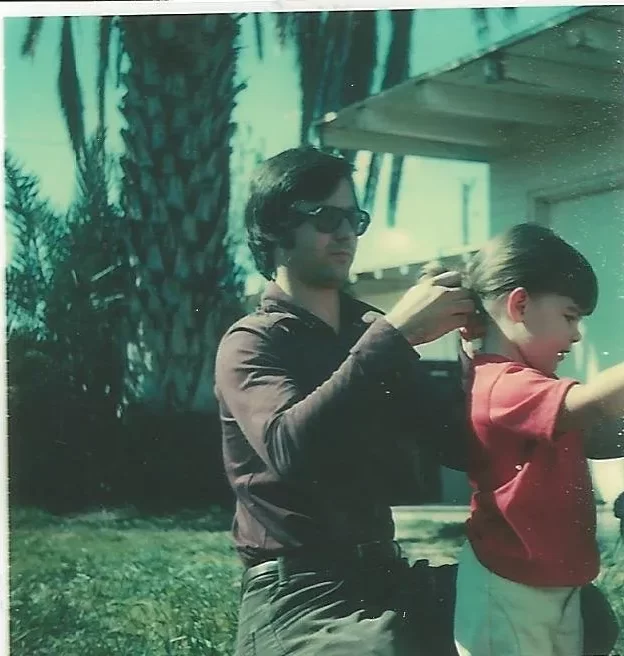
“One boyfriend told his parents that my father had died in a car accident. I was forced to play along. Another very serious boyfriend said he wanted to propose but decided he needed to break up with me instead because he didn’t want his children to have a serial killer as a grandfather.”
A third, Melissa Moore, daughter of the Happy Face Killer (he drew smiley faces on his letters to the media and law enforcement), told Marie Claire magazine : “When I came forward with my story, it was amazing because I started getting emails and letters from people that had a killer in the family.

“They dealt with the same stigma, the same issues, and were basically underground.” Moore is the daughter of Keith Jesperson, a long-haul truck driver from Canada, who is currently serving a life sentence without parole for murdering at least eight women although he confessed to killing 185.
Big Red Flags?
It would seem obvious that revealing you share DNA with a violent serial killer is bound to raise suspicions and big red flags in the minds of others, not to mention some sort of revulsion. But are those suspicions /concerns/revulsions valid? As I wrote in last week’s blog, my research for my latest thriller led me to find some agreement in the medical/psychological field that psychopaths can pass along a psychopath gene to their progeny.
Scientific studies have indicated that psychopathic traits such as lack of empathy, lack of remorse, pathological lying and the callous abuse of others are heritable traits. But not all psychopaths are evil or serial killers or even criminals. Some supposedly are CEOs and politicians.
Also, experts and neuroscientists like Robert Hare, the foremost expert on psychopaths, caution that genes alone do not create serial killers or criminals. Usually, there has to be some environmental factors like childhood or sexual abuse that triggers criminal behavior.
Where Are The Children ?
Naturally, my research into this subject then led me to look for the real-life children of real-life serial killers. There’s not a ton of information out there about these children except when the kids decide to step forward —or if they’re caught in criminal behavior themselves.
I discovered three such males in the latter group. One was the son of Joseph Kallinger, a schizophrenic serial killer who took his 12-year old son, Michael, along on a rape – murder spree in Philadelphia in 1974. Witnesses said Michael was involved in the crimes — although under the control of his father. Joseph was sentenced to life in prison in 1976. Michael was on probation till the age of 21 when he changed his name and was never heard of again.
Another young male offender was the son of the prolific Russian serial killer, Andrei Chikatilo, known as the Rostov Ripper, who committed crimes against more than 50 women and children. His son, Yuri was allegedly arrested and charged with stabbing a man multiple times. Michael and Yuri were small potatoes compared to Kenny Kimes.
Mother-and-Son Killers
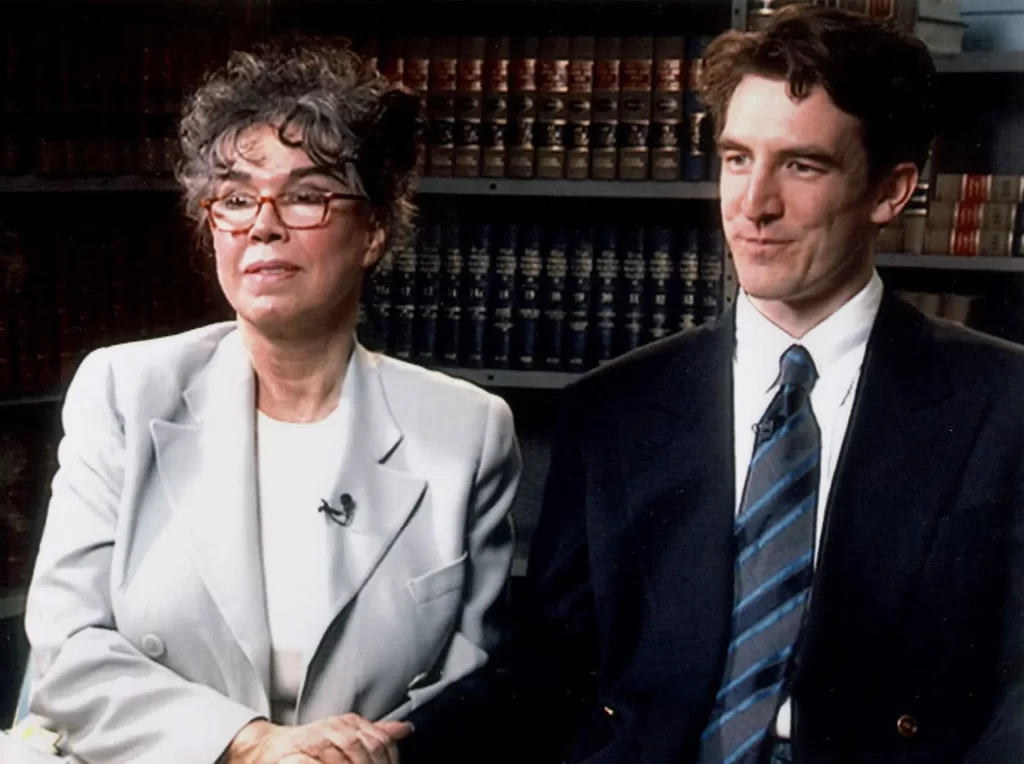
In the most famous case of “like-parent-like -son,” Kenny Kimes went on something of a killing- and- grifting spree with his mother, Sante Kimes. (See last week’s blog : warrior” gene for aggressive and violent behavior is passed down from the mother!)
Mother and son were allegedly involved in a number of disappearances/killlings before their arrest and conviction in New York for the murder of a wealthy widow. The New York Times ran a detailed article about Kenny Kimes in which he was described essentially as non-empathetic (“he wouldn’t think of others when he would do things”) with a violent streak — traits frequently associated with psychopathy.
Want To Stay Anonymous
In some of the cases, understandably, the children want to stay anonymous and have changed their names and identities. Rose Bundy, for example –the only biological child of Ted Bundy, a serial killer convicted for raping and murdering dozens of young women — moved with her mother from Florida where Bundy was executed. Bundy eventually confessed to 30 murders of young women.
Like my fictional antagonist, Rose was conceived when Bundy was awaiting execution on Death Row. Her mother who’d started her relationship with Bundy before he was caught and convicted said she did not believe he was guilty at first and visited him regularly in prison.
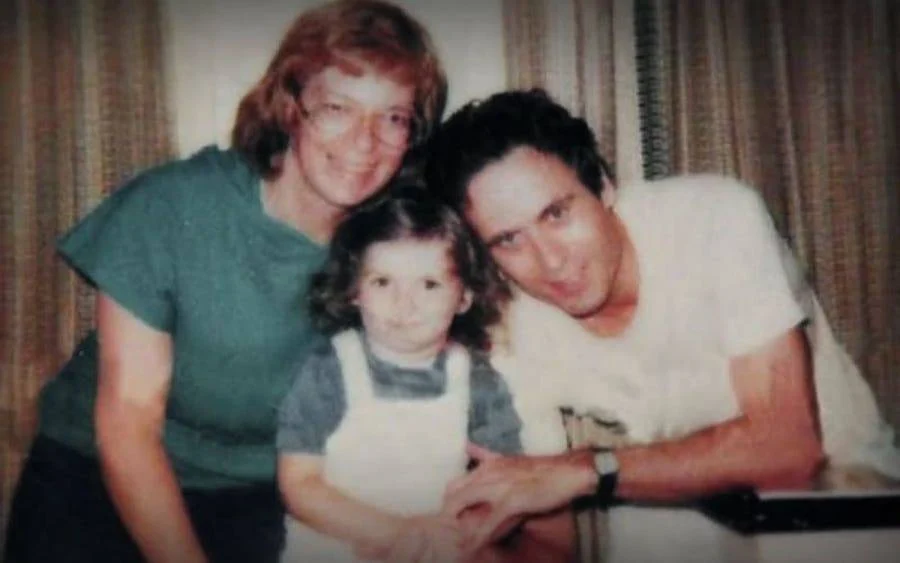
Boone moved when Rose was between 7 and 8 years old, and apparently did not disclose to Rose that Bundy was her father. The daughter now age 40 is said to be living somewhere in the UK and has three children of her own. True-crime author, Ann Rule, who wrote about Bundy in The Stranger Beside Me claims not to know exactly where she lives, but says, “all I know is that Ted’s daughter has grown up to be a fine young woman.”
Hollywood Murders
 Charles Manson Jr, the son of cult leader and mass murderer Charles Manson (left) also chose to change his identity and took his stepfather’s name and became Jay White. Father, Charles Manson was convicted of first-degree murder and conspiracy to commit murder of seven people. He was sentenced to life imprisonment after going on a bloody, slaughtering spree through the Hollywood Hills, with his followers slaying among others, a nine months’ pregnant actress named Sharon Tate and four of her friends in Tate’s home in 1969. The son, Charles Jr., born in 1956, committed suicide in 1993 at the age of 37. His son, Jason said that his father was never able to live down who fathered him — even after he changed his name.
Charles Manson Jr, the son of cult leader and mass murderer Charles Manson (left) also chose to change his identity and took his stepfather’s name and became Jay White. Father, Charles Manson was convicted of first-degree murder and conspiracy to commit murder of seven people. He was sentenced to life imprisonment after going on a bloody, slaughtering spree through the Hollywood Hills, with his followers slaying among others, a nine months’ pregnant actress named Sharon Tate and four of her friends in Tate’s home in 1969. The son, Charles Jr., born in 1956, committed suicide in 1993 at the age of 37. His son, Jason said that his father was never able to live down who fathered him — even after he changed his name.
In Plain Sight
In the case of the three young women —Kerri Rawson, Jen Carson and Melissa Moore – mentioned above, each has chosen to use her experience and insights to help others. Indeed, to show that evil is not necessarily a heritable trait, but that children of serial killers are themselves victims, too.
 Melissa Moore has featured families, children and loved ones of both victims and the killers on her podcast, Life After Happy Face. In her interview with Marie Claire magazine, she said:
Melissa Moore has featured families, children and loved ones of both victims and the killers on her podcast, Life After Happy Face. In her interview with Marie Claire magazine, she said:
“What a lot of people don’t know is that we [children of serial killers] kind of created this club, I would say. We would talk to each other and support each other. Sometimes I would hear something that one of the kids of a killer was going through and I would connect them to another person I know had that same [issue]. It’s kind of like a grief club but in a really unique way.”
Advocate for Families of Killers
Jen Carson has become a public advocate for children of prisoners, families of violent offenders and victims of violent crime. She says: “I fully understood why most children of serial murderers change their names and go into hiding, but I decided that hiding wasn’t something I would do anymore.
“Since I went public as the “daughter of a serial killer” in 2007, I have also had the opportunity to become a resource for other families of violent offenders and victims. In 2015, I joined the families of my father’s victims when he and Suzan unexpectedly received parole consideration. Together, we fought the parole with a petition, letter campaign, media blitz and our presence at the hearing. My father and Suzan are both still in prison.”
New Book
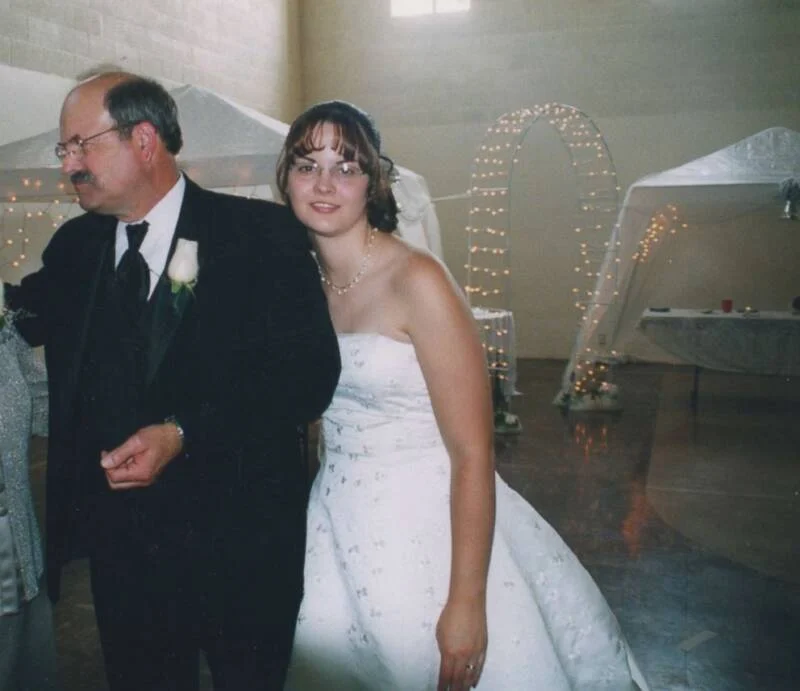
In her book, A Serial Killer’s Daughter, Kerri Rawson writes about going into therapy for post traumatic stress disorder. She says: “Dad committed his first murders a few months before turning twenty-nine, and I was turning twenty-nine soon, and maybe something would change in me, too.
“When I brought it up, Darian [her husband] said, ‘No. C’mon you don’t flip a switch one day and become a serial killer.’ Yeah but what if you do?” she asks herself in that chapter.
Rawson, now in her 40s, writes and tweets also as an advocate for victims of abuse, crime and trauma. Her second book, Breaking Free: Overcoming The Trauma of My Serial Killer Father will be published later this year, in October.